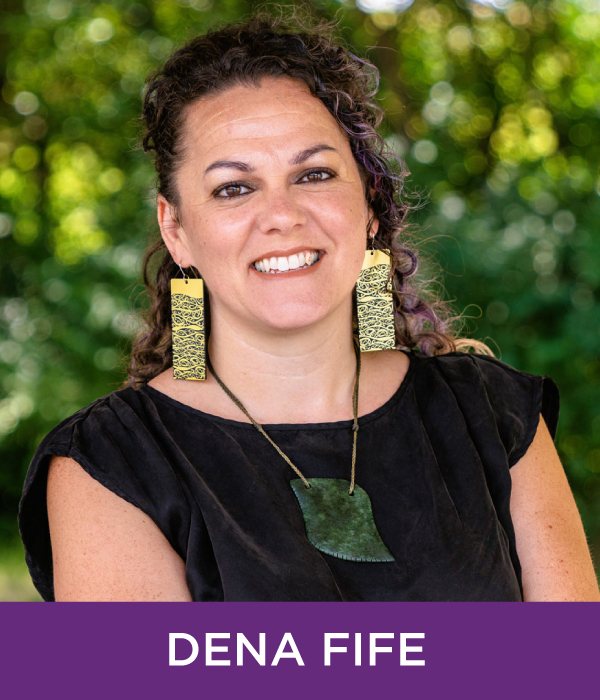‘More than a Checkbox’: How Public Health Training Centers Are Advancing Racial Justice
- By: Lisa Tobe, MPH, MFA and Lauren Milliken, MSW, MPH
- Date
In addition to other county and city leaders, policymakers from seven states and the District of Columbia have formally highlighted racism as a public health crisis or emergency. This spotlight can directly lead to increased attention, funding, and innovation needed to address the root causes of racism.
There is an immediate opportunity to create more equitable systems, programs, and communities where everyone can have access to the resources and information they need to be healthy. Many public health professionals want to integrate health and racial equity into their organization’s structure and initiatives but do not know where to start. Despite good intentions to implement systemic change, many public health organizations encounter challenges when attempting to authentically incorporate justice. To help guide these well-intended efforts, the Public Health Training Centers Network (PHTCN), in partnership with the National Network of Public Health Institutes (NNPHI), formed a workgroup to explore the development of a competency model—similar to the Council on Linkages Core Competencies for Public Health Professionals—based in racial justice principles and explicitly designed for public health professionals.
Each workgroup member submitted competency models and frameworks being used to develop health equity-related training, student projects, job descriptions, and other public health-focused materials. The result was a competency library consisting of over 650 competency statements. An Expert Review Panel (ERP) helped prioritize competency statements and offered feedback. The panel comprised 35 public health practitioners from state and local public health agencies, federal government agencies, non-governmental organizations, and schools of public health. Through an iterative consensus-driven process, the PHTCN and ERP co-created the Racial Justice Competencies for Public Health Professionals (RJCM), which contains 51 total competency statements. There are 17 competencies focused on introductory level professionals, 17 designed for intermediate or managerial level, and 17 for leadership level professionals. The RJCM also examines racial justice across three domains: assessment, policy development, and assurance.
Grounded in Systemic Change
Competency statements are inherently grounded in systemic change. The RJCM competency statements, which set the foundations for the model, use action words—such as examine, evaluate, create mechanisms, and illustrate—that delineate expectations for practitioners. These statements deliberately move beyond palliative words, like equity and root causes, to actively challenge the structures that create discrimination, power differentials, privilege, inequalities, and racism. According to Montrece McNeil Ransom, JD, MPH, Director of the National Coordinating Center for Public Health Training (NCCPHT) within NNPHI, the RJCM establishes clear, specific, consensus-based recommendations. “If you think about all of the domains, the idea is that we begin to normalize this conversation about health and racial equity issues around Black folks, people of color, and vulnerable populations,” said Ransom. “It ensures that these conversations do not get separated into their own thing but is a part of every single thing we do, every training we do, every step we take in public health.”
 The workgroup wants the model to be something other than an end in and of itself or a place where practitioners can determine they have met a requirement. Instead, they intend for the model to serve as an internal and external accountability measure that pushes people to expand their knowledge and practice of racial justice. “It’s not a checkbox,” said Dena Fife, one of the co-chairs of the RJCM workgroup and an Instructional Designer with the Iowa Institute for Public Health Practice. “It is a lifelong commitment.”
The workgroup wants the model to be something other than an end in and of itself or a place where practitioners can determine they have met a requirement. Instead, they intend for the model to serve as an internal and external accountability measure that pushes people to expand their knowledge and practice of racial justice. “It’s not a checkbox,” said Dena Fife, one of the co-chairs of the RJCM workgroup and an Instructional Designer with the Iowa Institute for Public Health Practice. “It is a lifelong commitment.”
Since its release in October 2022, public health professionals have downloaded the RJCM more than 1,600 times. The top four intended uses include developing job descriptions and use in the hiring process (29%), performance reviews (29%), personal skill improvement or assessment (21%), and organizational policy assessment (15%). However, there are numerous potential uses for the RJCM, and the PHTCN encourages all public health entities to explore how it can benefit and expand their racial justice work.
Public health departments and education programs can use the RJCM to improve existing public health courses, curricula, and training and reshape the public health workforce. State, Tribal, Local, and Territorial health departments can use the model to guide an array of tasks, from standard duties like creating job descriptions to long-term projects like developing training plans.
Within public health departments, Fife has been working on applying the RJCM to the Building Health Equity Training Program, which the Iowa Department of Public Health Commissions. The six-part health equity training seeks to establish the building blocks for a sustainable culture of health equity practice through asynchronous training opportunities, podcasts, and facilitated discussions. Fife is analyzing the learning objectives of the training using the RJCM framework to show the alignment between the two and to note any gaps. “Using the RJCM as a guide for this training will allow learners to deepen their understanding of health equity issues and hopefully become better advocates for health equity and racial justice within their communities,” said Fife.
Instructors at the North Carolina Credentialed Public Health Nursing Course are using the RJCM to move their content into action in this self-paced, online course. Their training team has students select at least one competency from each core function to commit to in their public health practice. “Because the RJCM tool names specific tasks that connect to the core functions they do already, it helps people see how to make and build on improvements over time,” said Robin Gault-Winton, NC Institute for Public Health Training Developer. “As all nurses eventually take this course, the competency-based tasks should become commonplace and ultimately make a positive difference in their work with clients.”
Given the recent attention to structural and systemic racism, the public health workforce has become more familiar with health and racial equity principles. However, many do not know how to incorporate them into their respective organizations or educational programs due to a lack of practical knowledge and skills for antiracist practices. For public health professionals seeking to take purposeful action, the RJCM provides a much-needed resource to aid in incorporating racial justice and equity competencies.
Aside from the competency statements, the RJCM also has a working glossary of definitions and terms- such as defining decolonization and Racial Equity, which will help people at various stages of their journey have standard definitions to work from. Similarly, the RJCM workgroup is developing a companion toolkit with models for the practical application of the RJCM. This complementary tool will aid public health practitioners in writing job descriptions, setting performance goals, creating equitable organizational systems, and other means of action. The PHTCN will periodically review and revise the RJCM to ensure it remains relevant for public health practitioners. This living document will take input, application, and feedback from the public health community to keep relevant and updated with best and emerging practices.
The PHTCN believes it is time for the public health field to put racial justice into action. The RJCM is a tool to propel public health toward racial equity.

 Subscribe To Our Communications
Subscribe To Our Communications